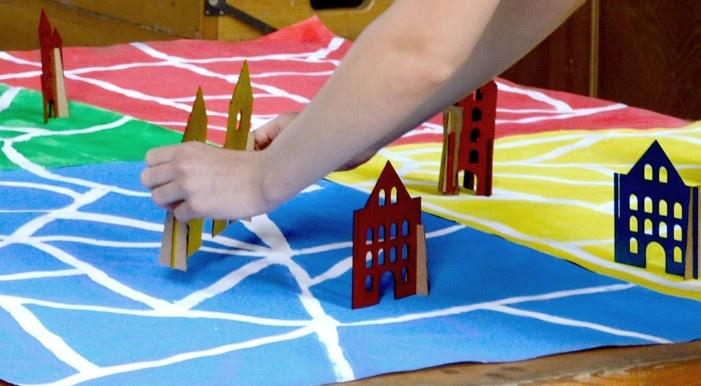Developing 21st century skills by using discussion-
Storytelling and communicative board and card games in lessons

Participants are introduced to and try learner-centered, innovative, cooperative, and playful tasks. They discuss the possibilities and limitations of using games in education, explore how knowledge and competencies are connected during classroom games, and how games contribute to deepening and solidifying students' knowledge. Card games are primarily at the center of the training. The training is based on personal experience and builds on the participants' creativity, ideas, and experiences. Taking their needs into account, it supports them in designing or creating their own instructional games using practical methods.
Description:
Participants interactively explore the components of 21st-century skills and digital citizenship competencies. Emphasis is placed on, among other things, knowledge related to preventing online harassment. Participants become acquainted with and try out various debate, storytelling, and communicative games. They discuss the possibilities of educational use for the presented games, possible didactic functions, and share their own experiences and ideas related to this. The training generally relies on experiential and reflective methods, focusing on the development of critical and problem-solving thinking, as well as communication skills. Participants get to know and experiment with online tools that support, complement, and expand the execution of playful tasks, and then evaluate their usability, usage methods, possibilities, and limitations. At the end of the training, based on their creativity and ideas, participants create, rethink, or adapt a freely chosen game to a curriculum topic they define or optionally develop a project idea. They can take with them a folder containing the necessary materials for using some of the tested games in the classroom, such as game descriptions, props, cards, game design templates, and so on.
Aims and objectives:
Participants will:
- Familiarize themselves with 21st-century competencies and the domains of digital citizenship.
- Get to know various communicative, storytelling, and debate games.
- Learn the procedures for implementing playful classroom tasks.
- Understand and discuss the characteristics of changing teaching roles, and dealing with different situations accordingly.
Learning outcomes:
Participants:
- Are familiar with 21st-century skills and the domains of digital citizenship.
- Are able to assess the possibilities of using individual games, adapting them from the perspective of their subject and the age group they teach.
- Are capable of selecting educational games that align with curriculum requirements and adapting selected board games for educational purposes.
- Are able to carry out projects aimed at designing simpler instructional games for student groups.
Target groups: Foreign language, history, geography, and literature-specialized elementary and secondary school teachers, class tutors, and after-school educators.
Minimum level of language: English, B2
Duration of training: 35 lessons, 7 days
Date: 20-26 July 2025
Location: Rovinj, Croatia
Price: EUR 595, incl. course, certificate, Erasmus+ documentation (if needed), welcome lunch or dinner, farewell cultural activity
Applicable funds: As part of the Erasmus+ Key Action 1 (KA1), all costs for mobility /travel expenses, course fees, accommodation, subsistence fee/ are covered by the fund.
Please click here to register if you wish to participate in this course.

Tanártovábbképzés külföldön - pályázattal